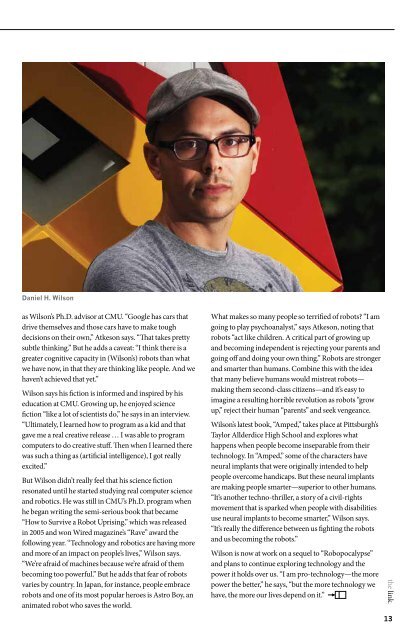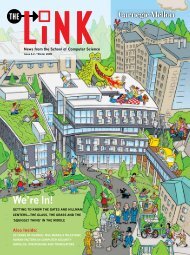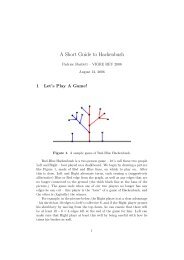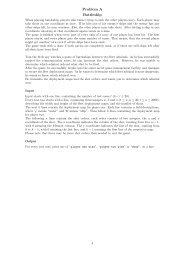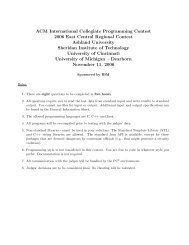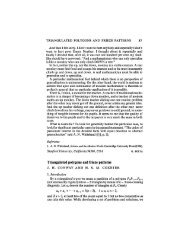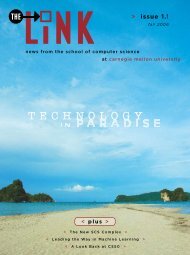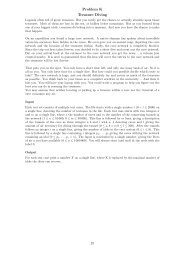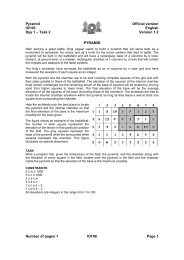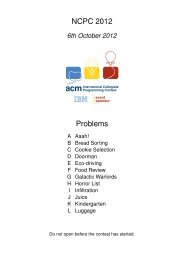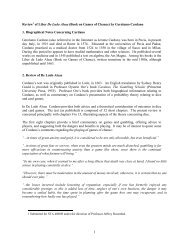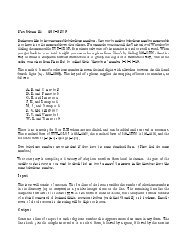Download now (1.3MB, PDF reader required) - Link home page
Download now (1.3MB, PDF reader required) - Link home page
Download now (1.3MB, PDF reader required) - Link home page
Create successful ePaper yourself
Turn your PDF publications into a flip-book with our unique Google optimized e-Paper software.
daniel h. Wilson<br />
as Wilson’s Ph.D. advisor at CMU. “Google has cars that<br />
drive themselves and those cars have to make tough<br />
decisions on their own,” Atkeson says. “That takes pretty<br />
subtle thinking.” But he adds a caveat: “I think there is a<br />
greater cognitive capacity in (Wilson’s) robots than what<br />
we have <strong>now</strong>, in that they are thinking like people. And we<br />
haven’t achieved that yet.”<br />
Wilson says his fiction is informed and inspired by his<br />
education at CMU. Growing up, he enjoyed science<br />
fiction “like a lot of scientists do,” he says in an interview.<br />
“Ultimately, I learned how to program as a kid and that<br />
gave me a real creative release … I was able to program<br />
computers to do creative stuff. Then when I learned there<br />
was such a thing as (artificial intelligence), I got really<br />
excited.”<br />
But Wilson didn’t really feel that his science fiction<br />
resonated until he started studying real computer science<br />
and robotics. He was still in CMU’s Ph.D. program when<br />
he began writing the semi-serious book that became<br />
“How to Survive a Robot Uprising,” which was released<br />
in 2005 and won Wired magazine’s “Rave” award the<br />
following year. “Technology and robotics are having more<br />
and more of an impact on people’s lives,” Wilson says.<br />
“We’re afraid of machines because we’re afraid of them<br />
becoming too powerful.” But he adds that fear of robots<br />
varies by country. In Japan, for instance, people embrace<br />
robots and one of its most popular heroes is Astro Boy, an<br />
animated robot who saves the world.<br />
What makes so many people so terrified of robots “I am<br />
going to play psychoanalyst,” says Atkeson, noting that<br />
robots “act like children. A critical part of growing up<br />
and becoming independent is rejecting your parents and<br />
going off and doing your own thing.” Robots are stronger<br />
and smarter than humans. Combine this with the idea<br />
that many believe humans would mistreat robots—<br />
making them second-class citizens—and it’s easy to<br />
imagine a resulting horrible revolution as robots “grow<br />
up,” reject their human “parents” and seek vengeance.<br />
Wilson’s latest book, “Amped,” takes place at Pittsburgh’s<br />
Taylor Allderdice High School and explores what<br />
happens when people become inseparable from their<br />
technology. In “Amped,” some of the characters have<br />
neural implants that were originally intended to help<br />
people overcome handicaps. But these neural implants<br />
are making people smarter—superior to other humans.<br />
“It’s another techno-thriller, a story of a civil-rights<br />
movement that is sparked when people with disabilities<br />
use neural implants to become smarter,” Wilson says.<br />
“It’s really the difference between us fighting the robots<br />
and us becoming the robots.”<br />
Wilson is <strong>now</strong> at work on a sequel to “Robopocalypse”<br />
and plans to continue exploring technology and the<br />
power it holds over us. “I am pro-technology—the more<br />
power the better,” he says, “but the more technology we<br />
have, the more our lives depend on it.”<br />
the link.<br />
13


